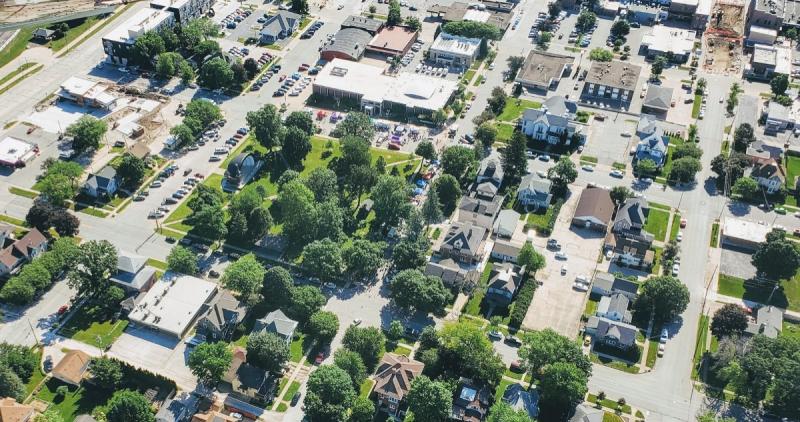
Like other American cities and towns, Cedar Falls is at a cultural crossroads. Waterloo and Cedar Falls have different but equally compelling challenges. In Cedar Falls, we must come to terms with the reality and enduring harm caused by past sundown town practices. As recently as 1947, an abstract for 22 new properties in the Cedar Heights neighborhood contained the restriction that, “No part of the premises herein platted shall be sold, leased to, owned or occupied by any person or persons other than persons of the Caucasian race, except that this provision shall not apply to servants of the owners or tenants''. This abstract was signed by the Mayor and City Clerk, making the government complicit in this discrimination. That we are a 91% white, 2.5% Black population was not a mere accident, or simply a matter of people living where they preferred. Cedar Falls was designed this way, and we weren’t alone -- such practices were commonplace in the last century, and its pernicious legacy haunts American communities even today. It’s time we recognize and renounce that sundown town past.
This year, the City Council updated the City Code to reflect the Cedar Falls Human Rights Commission (CFHRC) refers discrimination complaints to the Iowa Civil Rights Commission (ICRC). Some have charged that the CFHRC therefore “no longer investigates” discrimination complaints. That’s like saying that the city no longer builds streets simply because we contract the work out to experts. In the same way, the ICRC carries out the hard and exacting legal work of complaint investigation. The CFHRC’s oversight of the entire complaint process is one of the commission’s most important functions. If the ICRC didn’t perform satisfactorily, the CFHRC can and should make change recommendations to the City Council and me. I would take those recommendations under careful consideration, since the CFHRC is charged with monitoring the process.
The separation of the CFHRC from direct investigation allows commissioners to be advocates for those seeking to report discrimination. The CFHRC could not do this if it were also the investigating body. As advocates, CFHRC commissioners can reassure citizens and guide them through the complaint process, smooth out any bumps, answer questions, and ultimately ensure those investigations are timely and just. Every year, CFHRC’s commissioners will receive training from the ICRC to effectively serve in this vital advocacy role.
Finally, with the formation of the Cedar Falls Racial Equity Task Force, community leaders will have the opportunity to close the housing, education, and economic gap for Black residents, visitors and workers. We will need to thoughtfully engage in difficult conversations, including policy change proposals. We must avoid the temptation to view this complex social challenge through a merely partisan lens.
What kind of Cedar Falls do we want to leave for future generations? I love Cedar Falls and want a city where residents and visitors of all skin colors truly feel welcome and are treated with appreciation, dignity, and respect. I’m confident you do, too.
